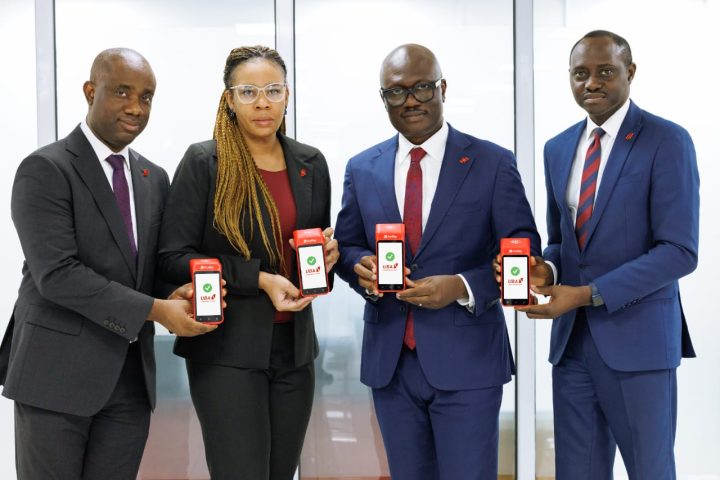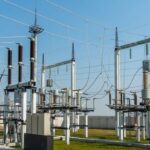By Kelechi Ogbu
Olu Verheijen, Special Adviser to Nigeria’s President Bola Tinubu on Energy, has revealed that the Federal Government spends over ₦200 billion every month on electricity subsidies.
Join our WhatsApp ChannelShe said the electricity subsidies benefit only wealthiest 25 per cent of Nigerians rather than those who truly need assistance.
Verheijen made this known in a statement released on Monday to clarify media reports suggesting an imminent 65 per cent increase in electricity tariffs.
According to her, the Federal Government has moved to address the issue by adopting a targeted subsidy system to ensure that low-income households receive most support.
Part of the statement reads: “Today, the Federal government spends over ₦200 billion per month on electricity subsidies, but much of this support benefits the wealthiest 25 percent of Nigerians rather than those who truly need assistance.
“To address this, the Federal Government is working towards a targeted subsidy system to ensure that low-income households receive the most support.”
Verheijen maintained that the approach will make electricity more affordable and accessible for millions of households.
Clarifying the media report on tariff Tinubu’s energy adviser claimed she was misquoted in her last press interview. According to her, what she said was that following the increase in Band A tariffs in 2024, current total tariffs now cover approximately 65 percent of the actual cost of supplying electricity across the country.
“It has become necessary to clarify media reports suggesting an imminent 65 per cent increase in electricity tariffs.
“This is a misrepresentation of what I actually said in a recent press interview.
“I highlighted the fact that, following the increase in Band A tariffs in 2024, current tariffs now cover approximately 65 per cent of the actual cost of supplying electricity, with the Federal government continuing to subsidise the difference.”
She further stressed that while the government is working towards ensuring fairer pricing over the long term, “the immediate focus is on taking decisive action to deliver more electricity to Nigerians, ensure fewer outages, and guarantee the protection of the poorest and most vulnerable Nigerians.”
She emphasised that in addressing the challenge of electricity access across the country, the Federal Government prioritises metering, debt reduction, and protection of the most vulnerable Nigerians.
Addressing Metering Gap
On efforts to address metering gap in the country, the Tinubu’s aide said the Federal Government plans to accelerate nationwide rollout of 7 million meters, under the Presidential Meter Initiatives (PMI) starting this year (2025) to end estimated billing for 7 million households.
“One of the most significant steps in this reform is the Presidential Metering Initiative, which is accelerating the nationwide rollout of 7 million prepaid meters, starting this year.”
READ ALSO: Nigeria Needs $2.5bn Investment To Tackle Power Sector Crisis
She pointed out that closing the metering gap would help give consumers confidence in what they are paying for and ensuring transparency in electricity charges.
“Metering will also improve revenue collection across the sector and will attract the investments needed to strengthen Nigeria’s power infrastructure,” she added.
To address this, the Federal government is working towards a targeted subsidy system to ensure that low-income households receive the most support. This approach will make electricity more affordable and accessible for millions of hardworking families.”
“One of the most significant steps in this reform is the Presidential Metering Initiative, which is accelerating the nationwide rollout of 7 million prepaid meters, starting this year.
READ ALSO: Nigerian Govt Incurs ₦464.12bn Electricity Subsidy Obligation
This will finally put an end to the practice of estimated billing, giving consumers confidence in what they are paying for and ensuring transparency in electricity charges.
Tackling Legacy debt and reducing cost for alternate power generation
The SA also disclosed that there are plans to address mounting debts owed to power generation companies.
“For years, these debts have prevented investments in new infrastructure and hampered efforts to improve electricity supply,” she lamented.
“By clearing these outstanding obligations, the government is ensuring that power companies can reinvest in better service delivery, stronger infrastructure, and a more stable electricity supply for all Nigerians,” she emphasised.
She said: “Through a range of fiscal incentives, including VAT and Customs Duty Waivers, the Federal Government is working to lower the cost of alternative power sources such as Compressed Natural Gas and Liquified Petroleum Gas.”
She added that the Government is aware of the present economic situation, and as a result, every policy is designed in consideration of Nigerian citizens.
“The government fully understands the economic realities facing citizens and is committed to ensuring that reforms in the power sector lead to tangible improvements in people’s daily lives.
“Every policy is designed with the Nigerian people in mind — eliminating unfair estimated billing, ensuring that subsidies benefit the right people, and creating the conditions for stable, affordable electricity”.
She further explained that the reforms are “laying the foundation for better service delivery, expanded access to electricity for homes and businesses, and unlocking prosperity for all Nigerian.”
Ogbu is an intern at Prime Business Africa.
















